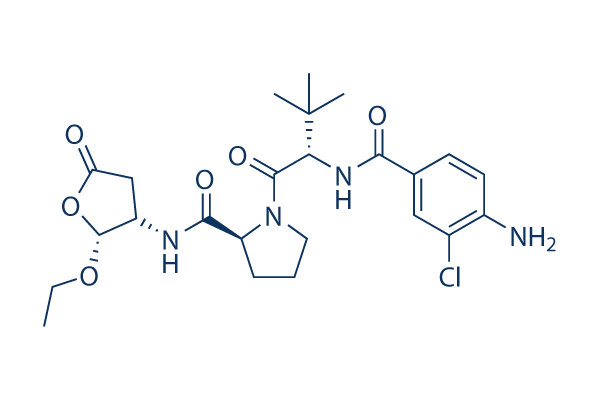Whether the ob served responses reported right here needs to be considered as worry or allostasis is arguable, but animals experien cing long term disturbances will tend to adjust their physi ology toward ordinary homeostasis. Even so, in excess of time these moderate stressors might have a adverse influence on fitness, as advised by the diminished growth noticed in both experiments. Interestingly, temperature stress seems to down regulate a number of essential liver transcription regulators. MYCN, HNF1A, HNF4A and NFE2L2 have been amongst the transcription selleck chemicals regulators that had been inhibited by large temperature. This obtaining suggests that heat worry may have had an effect about the transcriptional charge in salmon liver. With the exact same time, the vast majority of the upstream regulators using a predicted activated state are commonly related with responses induced by chemical medication.
So, the key liver transcriptional things affected by temperature anxiety recommend an effect on general transcription, while at the same time the environmental stimuli looks to in duce transcription of genes most frequently chloroxine linked to results of toxicants. The results recommend a switch toward in creased transcription of protective enzymes at the expense of synthesis of maintenance enzymes. Based mostly about the RT qPCR final results in the heat pressure research, it appears clear that liver transcription in Atlantic salmon is substantial impacted at temperatures above 17 C. In the evaluated markers for oxidative tension, 4 out of 5 genes, CuZn SOD, Mn SOD, GPx1 and GR, were reduce expressed in liver of fish kept at 19 C than in fish kept at optimal temperature at 13 C, while 3 genes, CuZn SOD, GPx1 and GR, also showed considerable reduce expression in fish kept at 17 C.
This might be on account of diminished mito chondrial ROS production being a result of diminished overall metabolism at larger temperature, whilst, usually, elevated environmental temperature results in enhanced oxygen consumption and ROS production and thereby enhanced oxidative stress in fish. Higher temperature mediated decrease expression of a number of  of the other evalu ated genes also, together with HIF1A. The only gene that showed a substantial larger expression in heat stressed fish was HSP90B. In heat stressed fish, HSP90B was posi tively correlated with HSP70, but this transcript showed no important correlation with any with the other evaluated genes, instead of for instance HIF1A, whose expres sion was substantially correlated with all evaluated tran scripts except for the two heat shock protein transcripts HSP70 and HSP90B. A number of overrepresented GO terms in fish exposed to reduced oxygen had been connected with tissuedevelopment and development.
of the other evalu ated genes also, together with HIF1A. The only gene that showed a substantial larger expression in heat stressed fish was HSP90B. In heat stressed fish, HSP90B was posi tively correlated with HSP70, but this transcript showed no important correlation with any with the other evaluated genes, instead of for instance HIF1A, whose expres sion was substantially correlated with all evaluated tran scripts except for the two heat shock protein transcripts HSP70 and HSP90B. A number of overrepresented GO terms in fish exposed to reduced oxygen had been connected with tissuedevelopment and development.
Microrna Assay
MiRNAs are thought to be involved in the regulation of many developmental and biological processes.
